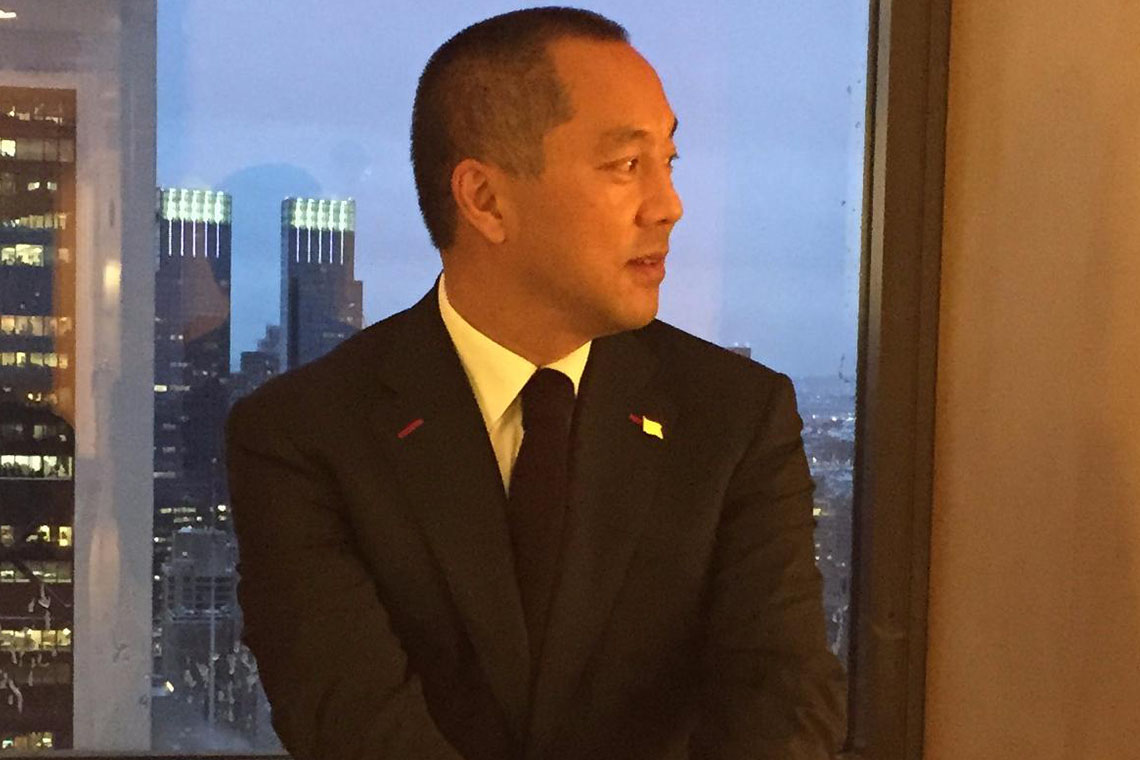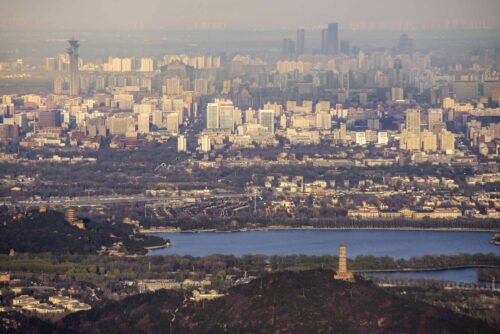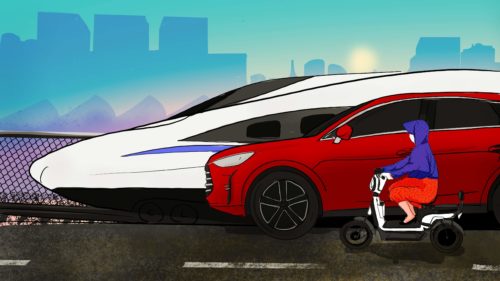China confirms commitment to Paris deal as Trump withdraws
A roundup of the top China news for June 1, 2017. Get this free daily digest delivered to your inbox by signing up at supchina.com/subscribe.

China: ‘We’ll always have Paris’
On June 1, while Donald Trump was busy announcing his decision to pull out of the global pact to reduce carbon emissions signed in Paris in 2015, the Party newspaper People’s Daily posted the following to Facebook:
Climate change is a worldwide challenge and no nation can stay away. China will fulfill the Paris Climate Accord, Chinese Foreign Ministry spokesperson Hua Chunying reassured the world, as the U.S. President Donald J. Trump announced on Thursday that the U.S. will start [a] years-long process to withdraw from [the] Paris Climate Agreement.
Trump explicitly referred to China in his speech, complaining of unfair treatment in the Agreement, and saying that it puts the U.S. at a “very, very big economic disadvantage.”
Trump’s decision highlights an extraordinary change in Chinese political culture: How did China come to embrace the fight against climate change despite an active domestic group of climate change deniers? Arguments questioning the science behind climate change and saying that it was a Western plot to keep China down were mainstream just a few years ago — Foreign Policy traces the history of Chinese climate change denial and how the Party “embraced climate science to become a green-energy powerhouse.”
Meanwhile, in the Huffington Post, Matt Sheehan looks at efforts from one state to ramp up cooperation with Beijing, reporting that “California governor Jerry Brown is getting ready to take on the role of America’s de facto climate ambassador,” and is about to take a weeklong trip to China, where he will “meet with Chinese leaders and members of the global Under2 Coalition, an ad hoc alliance of countries, states and municipalities committed to taking action to keep global temperature rises within two degrees of pre-industrial averages.”
If you’re interested in all the things that connect China and California, Sheehan writes the useful Chinafornia newsletter. He also recently wrote about Rex Parris, mayor of Lancaster, California, who is betting on Chinese investors saving his town, which is currently best known for meth labs and neo-Nazis.
Ivanka Trump’s Chinese shoemaker to head for Ethiopia?
On May 31, we noted reports about the disappearance of three men who were investigating working conditions at a Chinese factory that makes shoes for the Ivanka Trump brand. On June 1, the New York Times said (paywall) that “with many workers here complaining about excessive hours and seeking higher pay, the factory owner wants to send their jobs to Ethiopia.” A company spokesperson also said that the factory “scheduled extra hours during busy times but paid workers according to the law.” The “Ivanka Trump brand declined to comment on the labor conditions or the activists” to the Times, but in response to a question about bringing jobs back to the United States, the company said “it was ‘looking forward to being a part of the conversation.’”
It would seem that shoes, at least, will be spared the import tax Donald Trump has been threatening to levy.
Meanwhile, the New York Times reports (paywall) that “President Trump and his daughter Ivanka could sell jewelry and wedding dresses and provide catering services in China under new trademarks granted in recent days by Beijing.” The new Trump trademarks are the latest in a string of suspiciously speedy approvals.
Happy International Children’s Day!
Like International Women’s Day on March 8, although not a public holiday, Children’s Day is celebrated in China at least by state media outlets. In honor of the day, the People’s Daily has a feature (in Chinese) about Xi Jinping and children that is subtitled “The beautiful Chinese dream belongs to you.” The photo above is from a China Daily gallery of Xi photo ops with children, and shows him enjoying Children’s Day in 2013.
—Jeremy Goldkorn, Editor-in-Chief
Sinica Podcast: Kai-Fu Lee on artificial intelligence in China
A visionary venture capitalist and engineer on the present and future of Chinese tech.
This issue of the The China Project newsletter was produced by Sky Canaves, Lucas Niewenhuis, Jia Guo, and Jiayun Feng. More China stories worth your time are curated below, with the most important ones at the top of each section.
BUSINESS AND TECHNOLOGY:
Games, video, and transport: Mary Meeker’s view of the Chinese internet
Mary Meeker is a veteran tech analyst and investor who produces an influential annual report on internet trends. She has released her most recent report. You can see the whole presentation on her firm’s website. Here are some key points from the China section, which she calls “Golden age of entertainment and transportation”:
- Although the growth of the number of mobile phone subscribers is slowing, individual users are spending ever greater amounts of time using the mobile internet.
- Chinese consumers spend around 55 percent of their entertainment time online, with the mobile internet accounting for the lion’s share.
- Consumers are increasingly willing to pay for content, especially games, live streaming, and video.
- China is the biggest market in the world for interactive gaming (see Bloomberg: China just became the games industry capital of the world).
- Mobile payment volume doubled to more than $5 trillion in 2016, with Alibaba’s AliPay and Tencent’s WeChat Wallet dominating the market.
- Chinese companies have 67 percent of the global market share of on-demand transportation (such as ride hailing and bike rental). Although on-demand bikes are eating into the market for ride hailing, Meeker sees bike sharing as complementary to car use.
One notable lacuna in the report: It does not address the rise of artificial intelligence (AI). To find out about the state of AI in China, you can listen to this interview with visionary investor and engineer Kai-Fu Lee on the Sinica Podcast.
- Trials of embryonic stem cells to launch in China / Scientific American
“Studies to treat vision loss and Parkinson’s disease are the first to proceed under new regulations.” - Chinese yuan strengthens to seven-month high / Caixin
- ‘Ghost collateral’ haunts loans across China’s banking system / Reuters
- U.S. slips in global competitiveness ranking as China shoots up / Bloomberg
- Online wine seller Jiuxian raises glass to big board listing / Caixin
POLITICS AND CURRENT AFFAIRS:
Kenya opens 300-mile railway, with China’s help
The state-owned China Road and Bridge Corporation just completed a two-and-a-half-year, $3.8 billion railway project in Kenya, Newsweek reports. The 298-mile Mombasa-Nairobi Standard Gauge Railway (SGR) is the country’s largest infrastructure project since it gained independence from Britain in 1964, and the largest Chinese-funded infrastructure project in Africa so far outside of the $4.2 billion, 470-mile railway that connects Ethiopia and Djibouti.
The Kenyan line is “planned to extend westward from Kenya and into Uganda, Democratic Republic of Congo, Rwanda and Burundi, and northward into South Sudan and Ethiopia.” The Ethiopia-Djibouti line, meanwhile, sparked widespread expectations of a “trans-African railway project” connecting eastern Africa to the Atlantic Ocean when it made its inaugural journey in January 2017. For more on Chinese-funded railways in Africa, see this piece on CNN.
- EU leaders turn to China after Trump visit clouds U.S. relations / Bloomberg
Chinese Premier Li Keqiang is visiting Europe for a two-day summit on June 1 and 2. European leaders are “look[ing] to fare better” when he visits than when Trump came through last week and declared U.S.-German trade relations as “very bad.” - China’s corruption war escalates with sweep of sentences for senior officials / WSJ (paywall)
As we’ve noted in recent newsletters, Xi Jinping’s anti-corruption campaign seems to be back with a vengeance after a slowdown in news of officials being investigated and prosecuted. - Former statistics chief sentenced to life imprisonment for graft / China Daily
Wang Baoan 王保安, former head of China’s National Statistics Bureau, was charged with corruption in August 2016. In May this year, he pleaded guilty to accepting the equivalent of $22 million in bribes between 1994 and 2016. He has been sentenced to life in prison. - How China’s growing naval fleet is shaping global politics / Bloomberg
- China sees an opening in rift between Trump and Germany / NYT (paywall)
SOCIETY AND CULTURE:
China offers first exam room exclusively for HIV-positive students
On June 1, a school in Shanxi Province announced a separate test venue for a group of 16 HIV-positive students in the upcoming national college entrance examination that will take place next week, the Global Times reports. The school, Linfen Red Ribbon School, is so far the only facility in China that provides education and other medical treatments to children who are HIV positive. The school was founded in 2011 by a retired doctor, Guo Xiaoping 郭小平, who argued that HIV-infected children need to visit the hospital frequently for treatments and blood tests and thus would miss classes at regular schools. Initially an informal classroom in a vacant ward of Linfen No. 3 People’s Hospital, the facility expanded and moved to a 60,000-square-meter campus in the suburbs of Linfen in 2012 with financial support from the local government. The school now has 33 HIV positive students ranging from elementary to high school and a staff of 18. According to Newsweek, most children studying and living at this school contracted HIV through their mothers and were abandoned by their parents.
The decision to segregate HIV-positive students from other exam takers during the tests generated mixed reactions on Chinese social media, with some arguing that the separation will increase the general public’s discrimination against HIV carriers. On the social platform Weibo, one commenter wrote (in Chinese): “These children deserve to be treated equally. For those parents who feel uncomfortable to let their healthy children take the exam in the same room with these kids, do they know that the HIV virus cannot be transmitted by air?” Another stated, “Those who pay lip service online will very likely refuse to even hug a HIV carrier in reality.” In response to the dispute, Guo told the Global Times, “It is more of a protection measure for the kids rather than discrimination as some people have said online.”
- Yes she can. But how far is too far? / China Personified
A thoughtful response to the kerfuffle over the Chinese student’s commencement speech at the University of Maryland. - $380,000 Hermès Birkin bag sets new record at auction / Jing Daily
“An Hermès Birkin Bag with 18-karat white gold and diamond hardware broke the record for the most expensive bag ever sold at auction when it went to a bidder for $380,000 (HKD2,940,000) at Christie’s Hong Kong on May 31.” - Hidden away for 28 years, Tiananmen protest pictures see the light of day / NYT (paywall)
- Rural schools set up to fail under China’s ‘gaokao’ system / Sixth Tone
- Most of China’s huge number of smokers don’t want to quit, survey suggests / SCMP
- Identical Chinese twin sisters, praised for their brains and beauty, tick Harvard off their to-do list / SCMP





